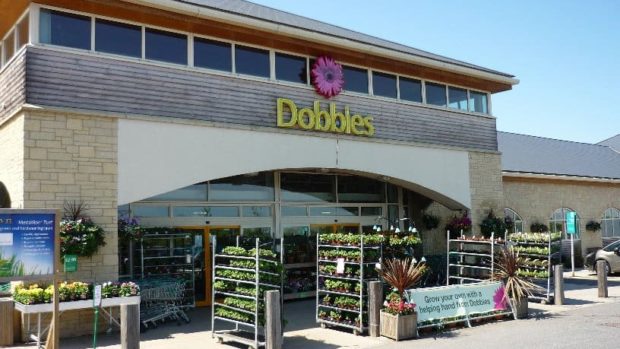
As the retail sector gears up for the Golden Quarter, Blue Yonder partnered with audience insights company, GWI to launch new research to showcase the impact of changing customer confidence and potential supply chain strains during the holiday season.
Interviewing 13,394 consumers aged 16-64 in the UK and US from ongoing surveys since Q2 2021, the research found that despite external unknowns, this year could outpace last year’s $9bn Black Friday as consumers look to make up for Christmas 2020.
The findings come at a time of mounting speculation that panic-buying is inevitable this season as retailers struggle to stock shelves and maintain full-time staff with consumers already looking to cross off their Christmas shopping list before shelves are emptied. However, the research points instead to a hopeful season for retailers, suppliers, and consumers alike.
Key findings from the research highlight:
- Spending power matches consumer enthusiasm in season of giving
37 per cent of UK consumers feel their personal finances will improve in the coming months compared to only 23 per cent last year. 30 per cent of Black Friday shoppers in the UK/US say they’re planning to spend more this year than they did last year.
- Santa’s workshop is open for business – earlier than normal
The research found that 62 per cent of gift givers in the UK say they will plan for winter holidays at least a month in advance.
As consumers gear up to spend more this season and any advanced planning means advanced demand on retailers and supply chains. Blue Yonder recommends brands and retailers pay early attention to transparency across their supply chains – that is, where is the stock – as well as better predicting customer demand and providing a more enhanced omnichannel experience for shoppers.
- Finding ‘Omnichannel Nirvana’
Generally, consumers are continuing to opt for online, as 38 per cent say their digital shopping has increased compared to last year, while 91 per cent estimate their online shopping will either stay the same or increase in the future. This is most notable within grocery, as 35 per cent of UK consumers purchased groceries online in the past month in Q2 2021, compared to 25 per cent in Q1 2020.
More broadly, the majority of UK based Black Friday shoppers plan to shop on online retail sites (70 per cent) followed by brand sites (37 per cent) and in-store shopping at department stores (27 per cent). However, the store remains a dominant force, especially for older consumers. In the UK, 55 per cent of baby boomers say they prefer to shop in-store vs online.
- COVID variant fears real among Black Friday Shoppers
48 per cent of Black Friday shoppers are moderately or extremely concerned about COVID variants. Coupled with the fact that consumers are returning to lockdown habits of bulk buying – most notably within the grocery sector more UK consumers shop online for staples than last year, it’s clear that a hybrid model is required to ensure all customers have access where and when they need it.
Providing omnichannel, personalised experiences for customers can help alleviate some of this concern: implementing things like same day click-and-collect or rethinking the role of the storefront can help drive people to the shopping experience they’re most looking for, whether it’s based on speed, ease, or sustainability.
- Amid shortages, shoppers are looking to vary their gifting
As we head toward the holiday season, we’re seeing stock shortages, price increases, and a shift among consumers away from traditional goods. According to data, 34 per cent of UK gift givers are on the hunt for the latest tech deals this season, compared to clothing and accessories (63 per cent); entertainment (50 per cent); jewelry (46 per cent); and gifting an experience – such as a spa trip or day out (39 per cent).
As experience-buys start to overtake goods, it will be important for supply chain businesses to adjust to the continual shift in demands, and what that ultimately means for retailers long term. Currently, retailers and vendors are having to make decisions sooner, making it difficult to change course later in the year. Addressing how external factors will impact shifts in buying trends will be critical to ‘getting it right’ in 2022.
Retailers are working hard to deliver this year in light of supply chain stressors, lingering COVID fears, and the move away from the high street. The research points to three ingredients for a successful ‘Golden Quarter’ for retailers: providing a smooth omnichannel experience, promoting transparency throughout supply chains to ensure stock is available as and when customers need it, and forecasting accurately for expanding seasonal demand.
While we’re still having to contend with COVID concerns, people are ready to celebrate the holiday season with loved ones – the way we’re used to doing. This new research from GWI shows just how eager people are to spend over the Christmas period. Fuelled by concerns around stock shortages, more people are getting organised earlier in a bid to ensure they have the Christmas they hope for. This all means retailers have to work that bit harder to keep up with increased demand for certain products and ensure they don’t lose out”, comments Katie Gilsenan, trends manager at GWI.
“Christmas has always been the most important time for retailers”, says Wayne Snyder, VP of retail industry at Blue Yonder. “Over the past few years, however, we’ve seen that spending has started to take place much sooner, with consumers looking to make the most out of seasonal sales on days such as Black Friday, Cyber Monday and Singles Day. Now we’re seeing a shift away from buying ‘things’ to buying ‘experiences’ – all of these changes have a serious impact on the long term health of supply chain functionality, and the survival of retail .”
“To make the most of this season, retailers must prioritise planning and stock management. This is particularly important this year, following recent shortages, an influx of panic buying and continued delays due to a lack of lorry drivers. The retailers who fail to get ahead and plan accordingly will fail to capitalise on the opportunity presented by the festive period.”








Share